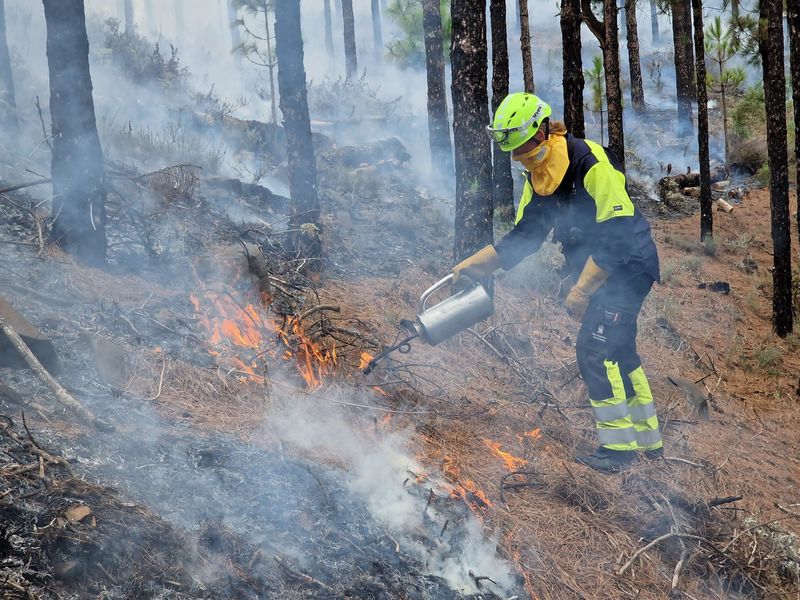On March 1, the PREPAST project held its kick-off meeting in Àger (Lleida), attended by La Sabina Association, the promoting entity, the city council of Àger (Lleida), the Forest Science and Technology Center of Catalonia (CTFC) and the Pau Costa Foundation (FPC), project partners. This first meeting served to introduce project partners, overview the project and plan the main actions to be carried out during the next months.
PREPAST project aims to recover extensive grazing in the Pre-Pyrenees, one of the most abandoned areas of NE Spain, to promote bioeconomy, and ecological transition and prevent rural land abandonment and gender gap. More specifically, the project will work on prioritizing strategic areas where grazing can be promoted to prevent the risk of wildfires and will benefit scavenger birds such as the bearded vulture, due to flocks being an important source of food for them. The project will also pay special attention to the social recognition of the shepherd’s profession and ecosystem services derived from grazing activities such as forest management or quality products from herds.
Pau Costa Foundation will use the expertise of its renowned project Ramats de Foc (Fire flocks) to enhance local shepherding conditions by recovering livestock infrastructures such as corrals and watering holes or promoting the presence of new shepherds or new herds in the study area, Montsec and Boumort mountains.
“It’s shocking the number of abandoned corrals and forest areas without management that abound in this area of the Pre-Pyrenees. We will use knowledge from Ramats de Foc project to work closely with local shepherds with the aim to revitalise their socioeconomic network, as well as we’ll promote the contribution of herds to fire risk management.” says Merlès Martínez, technician of ”Ramats de Foc” project.
PREPAST will allow us to generate a positive impact by improving the local socioeconomic network and promoting biodiversity. The project also foresees the creation of new jobs and opportunities for local shepherds.
“It’s important to ensure that extensive grazing projects get established in this area, but it is essential that they can continue because many of them are not viable in the long term due to a lack of resources. Consequently, PREPAST will work on a vision focused on continuity,” says Merlès Martínez.
PREPAST is supported by Fundación Biodiversidad del Ministerio para la Transición Ecológica y el Reto Demográfico (MITECO) within the framework of the Recovery, Transformation and Resilience Plan (PRTR), financed by the European Union – Next GenerationEU.







